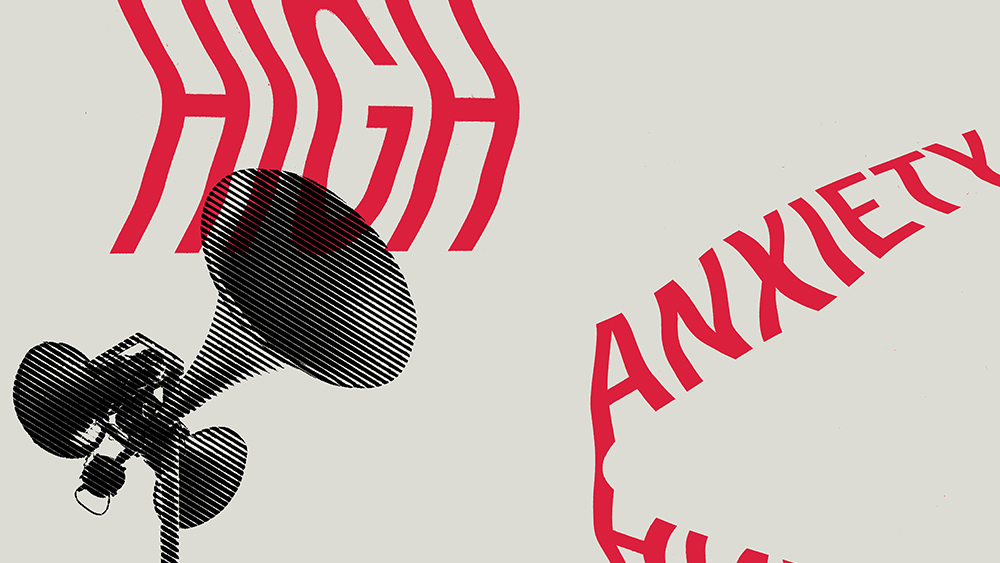Stories
Show Stopper: Coronavirus Sends Hollywood Into Unprecedented Crisis
The cancellation of SXSW on March 6 due to the coronavirus epidemic sent shockwaves through the entertainment industry. But in truth it was the culmination of weeks of mounting anxiety — in executive suites and corporate boardrooms, on studio lots, across television and film sets, at red-carpet premieres and in multiplexes and concert venues — that has left Hollywood fearfully staring into an abyss of uncertainty.
No conversation, it seems, is complete without at least some reference to a public health crisis so widespread and world-altering that it could have been the plot of a blockbuster thriller. And actually, it was — 2011’s “Contagion,” directed by Steven Soderbergh, became one of the most rented movies on iTunes last week. But now, it’s all too terribly real, with 4,262 reported deaths worldwide, and 118,583 confirmed cases — at least, as of press time. Those numbers will have increased by the time this story is published.
Much as the spread of the virus now referred to as COVID-19 has been staggered across the globe, so has the reaction to it. Parts of Asia have been on lockdown for weeks, Italy recently shut down the entire nation and several European countries have also seriously considered lockdowns. Despite the cancellation of major communal events, the U.S. remains largely in a nervous, wait-and-see posture, with everyday business certainly interrupted but still moving forward.
But the brutal math of viral pandemics (though the CDC has yet to define the outbreak in such terms) is at once impossible to escape and frustratingly tough to nail down for certain. On the same day of SXSW’s cancellation, biologist Liz Specht posted a widely read Twitter thread in which she forecast as many as 4 million COVID-19 cases in the U.S. by mid-May, and 2 to 6 billion cases worldwide by July.
Specht’s calculations, however, appear to be a worst-case scenario. “While well-intentioned, these forecasts are still assumptions, some of which are based on misleading data,” says Patricia Sung, epidemiologist and manager of infection prevention at the University of Southern California’s Verdugo Hills Hospital. Sung stresses that businesses should look to the Centers for Disease Control and Prevention and local health departments for guidance. The CDC, however, has not yet ventured a concrete prediction for how bad the virus’ spread in the U.S. could get. As of March 9, the CDC’s coronavirus website stated in carefully vague terms that “for the majority of people, the immediate risk of being exposed to the virus that causes COVID-19 is thought to be low.”
Suffice it to say, it’s difficult to fathom just how massive an impact this epidemic will have on the world, especially the entertainment industry, a multibillion-dollar business built on a foundation of public gatherings and routine travel. One thing, at least, is clear: Should the virus continue to spread on its current trajectory, Americans need only look across the Atlantic to Europe to grasp their immediate future, and across the Pacific to Asia to see where things will ultimately lead.
Since news of the outbreak began to emerge out of Wuhan, China, in January, entertainment companies and talent agencies have started imposing travel restrictions, urging some employees in affected areas to work from home, and encouraging staffers to do more teleconferencing and fewer big in-person meetings. Media stocks have collectively taken a walloping, sinking in tandem with the rest of the market over the past few weeks, largely on coronavirus fears. The dire economic effect of the epidemic is beginning to sink in across the entertainment and media landscape. Disney shares have tumbled nearly 23%, while ViacomCBS, already on a downswing, has fallen more than 51% so far this year. During previous economic downturns, shared consumption of pop culture — going to the movies, seeing a concert — has often been viewed as recession-proof. That’s not the case with COVID-19.
“This is going to have a broad impact on most of the sectors in all of the economies of the world, but entertainment will be particularly hard hit,” says Hal Vogel, a veteran media analyst. “People are scared right now, and they’re not going to want to spend a lot of time in a crowded theater. The big issue in my mind, and it’s not answerable yet, is how long will this go on and will it intensify?”
Executives, filmmakers, agents, publicists, talent and analysts say that the situation is entirely unprecedented. There’s never been a global epidemic that threatened so many core pieces of media conglomerates at the same time. When more people get sick with the virus, consumers will likely stay home, avoiding multiplexes, Broadway theaters and rock concerts. In the short run, people will likely flock to streaming services such as Netflix and Disney Plus, which offer consumers access to movies and shows from the safety of their homes. Amid the market meltdown, Netflix has been a standout stock in the media sector. The streamer’s shares are up 12.5% since the start of the year through March 10 compared with S&P 500’s 10.8% drop over that period. Investors see Netflix as relatively virus-proof, with virtually no exposure to epidemic-related revenue declines. If anything, the company stands to benefit if the outbreak worsens and people avoid public venues.

